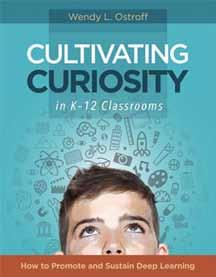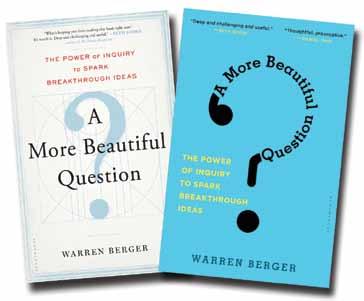
4 minute read
Readers Corner
EARCOS welcomes book reviews from its members and on many occasions in the past has published such member analyses. We will continue to reserve space in EARCOS Triannual Journal for these reviews. However, we are adding a feature that will simply publish titles of books recently read by EARCOS members with a brief recommendation of its usefulness to our collective work as learning leaders.
Those members who attended the Leadership Story Keynotes at ELC 2016 in Kuala Lumpur learned from Shelly Luke Wille, Head of School from Chadwick International School Songdo, that books play an important role in her professional growth and development. Shelly shared inspiring anecdotes related to books that meaningfully advance her work, as a learning leader.
EARCOS members are encouraged to share book titles and authors for this new feature for upcoming ET publications. You are simply asked to provide one or two sentences as comments regarding its usefulness to our collective work, as learning leaders. Send titles, authors and recommendations to Edzel Drilo at edrilo@earcos.org and Joe Petrone at jpetrone@earcos.org.
Below are some of those book titles and authors Shelly shared with us. You will also find a brief recommendation excerpted from Leadership Story of the book’s usefulness to our collective work, as learning leaders. Enjoy.
Book Title: “The Spider King’s Daughter” Author: Chibundu Onuzo EARCOS Learning Leader: Shelly Luke Wille
Recommendation: The book illuminates that “the importance of including contemporary literature from multiple perspectives is one way to prepare our students for their globalized future”.

Book Title: Cultivating Curiosity Author: Wendy Ostroff EARCOS Learning Leader: Shelly Luke Wille
Recommendation: This book “inspired me to prioritize curiosity in my hiring decisions to ensure that our community continues to wonder and inspire curiosity in our students”.
Book Title: “A More Beautiful Question: The Power of Inquiry to Spark Breakthrough Ideas” Author: Warren Berger EARCOS Learning Leader: Shelly Luke Wille

Recommendation: This book has been “inspiring me for well over a year as I work to add more inquiry to my own practice and reflection. The rationale and framework for using inquiry has inspired our community to ponder our own more beautiful questions”.
By Joseph Barder IT Director - Nanjing International School
During our recent Book Week at Nanjing International School we shared some great books about technology, education and learning. In this day and age, it behooves us to take a few minutes each day to unplug, sit back and read a good book, giving our brains a chance to get back to thinking deeply.
As Nicholas Carr puts it: “In the quiet spaces opened up by the prolonged, undistracted reading of a book, people made their own associations, drew their own inferences and analogies, fostered their own ideas. They thought deeply as they read deeply.” Whether you have a negative or positive affinity for digital technology, these books encompass all of the possibilities – good and bad – that exist in our digital age. Happy reading and discussions!
Non-Fiction
Disconnected: Youth, New Media, and the Ethics Gap – A book from author/researcher Carrie James, part of Harvard’s Project Zero and The Good Play Project, in which she examines the different ways that youth (ages 10-25) approach online activities. From the foreword: “James finds, among other things, that youth are often blind to moral or ethical concerns about privacy; that attitudes toward property range from ‘what’s theirs is theirs’ to ‘free for all’; that hostile speech can be met with a belief that online content is ‘just a joke’; and that adults who are consulted about such dilemmas often emphasize personal safety issues over online ethics and citizenship.” Whether you are a teacher, parent, student, or a bit of each, this book offers some great insights into the sorts of discussions we should be having to bridge the “Ethics Gap.”
The Shallows: What the Internet is Doing to our Brains – By journalist Nicholas Carr, he examines a question once posed in an Atlantic Monthly cover story: “Is Google making us stupid?” He provides a compelling argument about how the internet has led to a breadth of knowledge at the expense of deeper understanding. At times critical of the advances of the modern era and digital technology, he does a great job of provoking technophiles to think about their activities and relationship with the internet, while providing poignant vignettes of the development of technology throughout the ages. NB: Take it all with a grain of salt!
The Innovators: How a Group of Hackers, Geniuses, and Geeks Created the Digital Revolution – A book by Walter Isaacson (who brought us the acclaimed Steve Jobs biography) that explores the stories of the people that brought us the modern day computer and the internet. A fantastic history that calls to the fore the incredible genius and courage of the women and men that brought us computers in our pocket and allow us to communicate instantaneously across the world with the push of a button.
Fiction
The Circle – An eerily prescient novel by Dave Eggers revolving around a young woman who has just been hired by a Google-type organization that is pushing for “one online identity and a new age of civility and transparency.” This book will have you wondering about the future of “open” technology and in deep discussion about the limits on history, privacy, democracy and more.










